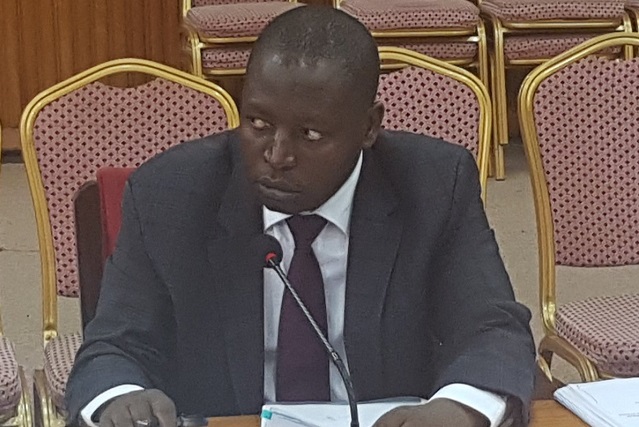
Kampala, Uganda | THE INDEPENDENT | A Select Committee of Parliament has today quizzed the State Minister for Planning, David Bahati over the selective implementation of a parliamentary resolution regarding payment of Ugandan Companies which supplied goods to South Sudan.
Bahati’s appearance follows payment of 40 billion Shillings to only 10 Ugandan Companies by the Finance Ministry contrary to a 3rd April 2018 Parliamentary Resolution in which a bilateral agreement between South Sudan and Uganda was approved. The Parliamentary Resolution indicated payment of 33 Companies for which Shillings 40 billion was appropriated in the Financial Year 2018/2019 budget for its implementation.
However, Parliament learnt that the Finance Ministry paid out the entire Shillings 40 billion to Uganda-South Sudan grain traders, an association of only 10 traders leading to an investigation. The paid companies include Rubya Investments, Kibungo Entreprises, Aponye (U) Ltd, Afro Kai ltd, Swift commodities establishment ltd, Sunrise commodities, Sophie Omari, Apo General Agencies, Ropani International and KK Travellers.
The other 23 companies that parliament resolved should be paid and were left out include; Roko Construction Company, Ake-jo General enterprise, JB Traders, Odyek Ejang Company, Dott Services, Gunya company limited, Premier company, MFK company, Chant Agencies, Madut Cham Company Ltd, M/S Wang Logistics Ltd among others.
Now while before the Select Committee, legislators led by the Chairperson Ann Maria Nankabirwa asked Bahati to explain why the Parliamentary resolution had not been respected by paying all the 33 Companies with the Shillings 40 billion that was appropriated.
Bahati explained that the payment of only 10 companies had been informed by the bilateral agreement between South Sudan and Uganda in which they were named and South Sudan committed repayment of the money by issuing a sovereign guarantee to the Bank of Uganda.
Bahati said that any other claimant seeking compensation was to first go under a fresh verification process involving the government of South Sudan and that upon their confirmation, a new sovereign guarantee would be required.
He revealed that the government of Uganda is in April 2019 sending a delegation to South Sudan with a complied document of all claimants besides the 10 companies seeking compensation with a view of coming up with a solution. The move follows non-response to several communications to South Sudan concerning compensation of traders that have not been responded to.
Bahati further defended the payment of only the 10 companies citing an opinion by Attorney General William Byaruhanga dated 8th October 2018 in which he supported the payment of the 10 companies and not any other pending joint verification of the rest of the claimants.
However, Nankabirwa insisted that the resolution of parliament was clear for all the 33 companies to be paid demanding Bahati to present before the committee a letter that sought the Attorney General’s opinion.
Masaka Municipality MP Mathias Mpuuga also demanded that Bahati explains the basis of the Attorney General’s opinion concerning a Parliamentary resolution with the State Minister responding that he did not readily have the letter in which the an opinion was sought from the Attorney General. Mpuuga insisted that the letter is availed to the Select Committee so that an observation is made on the matter.
One of the terms of reference of the Select Committee is to establish whether the payments to the Uganda-South Sudan were effected in line with the resolution of parliament. The Select Committee is scheduled to interface with Attorney General William Byaruhanga on Thursday.
******
URN
 The Independent Uganda: You get the Truth we Pay the Price
The Independent Uganda: You get the Truth we Pay the Price





